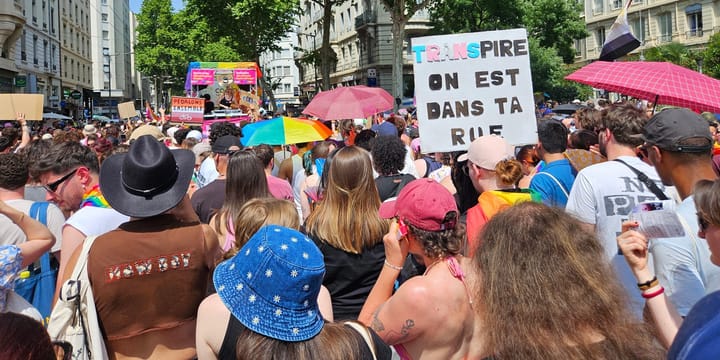EU rights agency warns of "alarming" violence against intersex people

The European Union Agency for Fundamental Rights (FRA) has raised serious concerns over violence and discrimination faced by intersex people across the EU, describing the situation as “alarming” in its latest report.
Based on a comprehensive survey involving over 140,000 respondents from EU member states, North Macedonia, and Serbia, the FRA found that intersex individuals, along with other members of the LGBTI community, continue to face widespread abuse, harassment, and exclusion. The report reveals that 43% of respondents experienced discrimination, a figure that rises to 60% among trans people, with 5% reporting physical or sexual assault.
The findings highlight that discrimination is not confined to isolated incidents but is embedded in everyday life - from workplaces and public spaces to access to housing, healthcare, and social protection. Many victims remain reluctant to report hate crimes due to fear of retaliation or lack of trust in law enforcement.
Intersex advocacy groups have criticised the EU’s slow progress in recognising and protecting sexual minorities. “Imagine being afraid to hold your loved one’s hand in public, or enduring ridicule every time you show your ID,” the report states, illustrating the daily realities faced by many.
The FRA also pointed to the role of political rhetoric and public figures in fuelling prejudice. Respondents identified politicians and parties as key contributors to intolerance, while also noting that visibility and support from public figures could make a significant positive impact.
Despite the EU’s commitment to equality, the lack of a comprehensive anti-discrimination directive continues to hinder progress. The proposed Equal Treatment Directive, which would extend protections beyond employment, remains stalled after more than a decade.
Marc Angel, co-president of the European Parliament’s LGBTI Intergroup, stressed the urgency of legislative action: “We need an Equal Treatment Directive to protect against discrimination beyond employment to ensure proper protection.”
The report also coincides with broader concerns about data collection and legal definitions across the EU. A separate investigation by Euractiv revealed that many member states lack consistent frameworks for recording gender-based violence, including violence against intersex individuals. This data gap undermines efforts to address the issue effectively and deliver justice to victims.
As the EU prepares to publish a more detailed gender-based violence report in 2025, rights organisations are urging immediate action. Helena Dalli, the EU’s Commissioner for Equality, has pledged to support member states in developing national LGBTI strategies, though the COVID-19 pandemic has delayed several initiatives.
With rising hostility in some regions and increasing visibility of intersex and other LGBTI communities, the FRA warns that complacency could lead to further marginalisation.
Support independent LGBTQ+ journalism
Scene was founded in Brighton in 1993, at a time when news stories about Pride protests were considered radical. Since then, Scene has remained proudly independent, building a platform for queer voices. Every subscription helps us to report on the stories that matter to LGBTQ+ people across the UK and beyond.
Your support funds our journalists and contributes to Pride Community Foundation’s grant-making and policy work.
Subscribe today




Comments ()